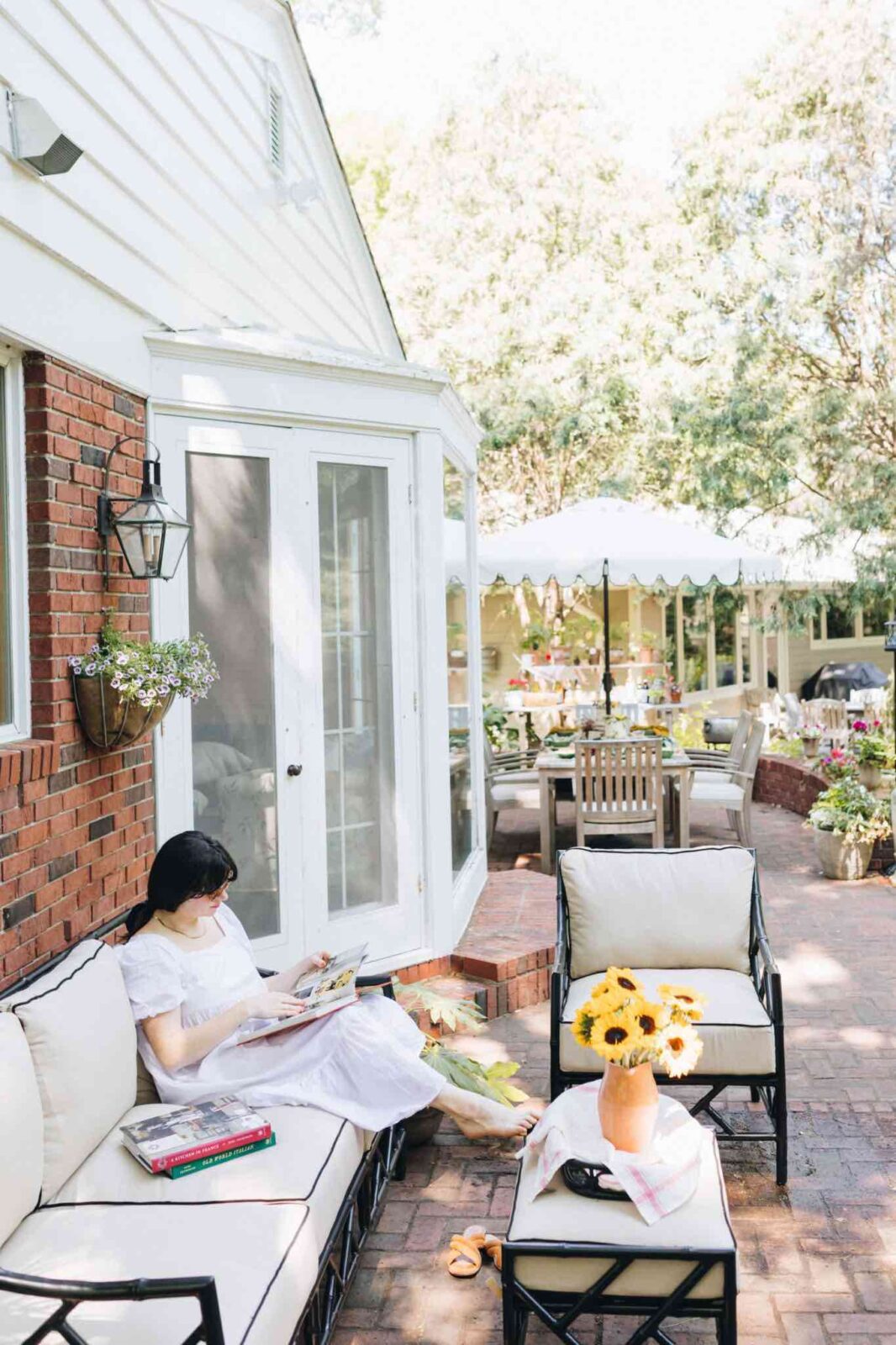As I’ve gotten older, I have learned the virtues of pausing before reacting, especially when I’m stressed or upset. (Oh, how I wish it was easier to remember this in the moment!) I’ve realized that the secret behind “the pause”—which is beneficial in both parenting and navigating any other relationships—is figuring out how to get comfortable with not reacting. And that means getting comfortable with being still, even if all of our instincts might say otherwise.
Stillness is not something you do perfectly. It’s not necessarily a meditative state. Framing it in that way can be another way of judging yourself. Rather, stillness is about pausing and noticing. It’s a muscle that, when exercised, will become stronger over time.
There’s a Rachel Cargle quote I read recently that really hit home for me:
Life can just be lived.
You don’t have to:
prove anyone wrong…
make anyone proud…
change the world…
leave a lasting legacy…
You can simply show up, find the joy, be good to you and be good to others, learn from the pain, hold yourself accountable, relish in the wonder of it and ride this thing out.
We all will most likely always be working to find stillness, because so much of what it embodies goes against what we’re taught about what it means to be an “adult,” especially in American culture. We’ve been taught to keep going, at any cost; that productivity is the most esteemed way we can denote our value. It’s a mindset I’m continually trying to unravel. I’m continually trying to remember what Rachel expressed—that I can simply live a life, no expectations necessary.
Stillness is about pausing and noticing. It’s a muscle that, when exercised, will become stronger over time.
The practice I’m sharing with you today is a part of that for me. It’s about allowing myself to pause, even when everything in me is telling me to keep going, no breaks required. I hope you find it as helpful as I have.
The Practice
Taking breaks is something we all need to function. Over time, I’ve realized I only need a five-minute break to step away, check in with myself, and reset. Whenever I begin to feel a sense of overwhelm, I’ll pause, remove myself from the current project or task, and intentionally take five minutes to myself.
The goal is to do this when you first start feeling a little uneasy. In my experience, if you let those feelings of unease or stress go too far without addressing them, it can take longer to come down from them.
Why I Started Doing It
Before this practice, I’d often feel myself checking out during the day, getting fidgety or tired, and feeling that sense of uneasiness. Previously, what I would do in response to overwhelm was bring up a new project or try to bite off even more, before I ultimately would reach my breaking point and shut down.
Taking a five-minute break when I need it has helped me learn to notice and respond when I’m entering a state of sensory overwhelm. It’s allowing me to gain trust in myself and my ability to listen to, respond to, and meet my needs. The more you practice this response cycle, the more your system has an opportunity to heal. Things may still be triggering but you won’t get caught as often in that pattern of overwhelm.
For me, this practice began when my therapist introduced me to polyvagal theory, and the effect the vagus nerve has on regulating your parasympathetic nervous system. The sensation of unease and overwhelm is called being in a mobilized state. The goal of a healthy parasympathetic nervous system is to go back and forth from a mobilized state to a relaxed state without getting caught in the burnout phase that comes when you’ve been mobilized for too long. This practice has helped me regulate my emotions more effectively so I’m now rarely stuck in the mobilized state.

Here’s How It Fits Into My Daily Life
Multiple times a day, I intentionally pause and check in with myself. I get still and listen, doing a body scan to notice how I’m feeling. The more I do these check-ins, the easier it is to do them on autopilot.
I ask myself what exactly it is that I need. Would it feel nice to sit and simply breathe? Would it feel nice to put my clothes away? How about cuddling the dogs? Would it feel nice to get up and walk around for a few minutes? I react and do whatever the need is in the moment, taking a five-minute break from the present project or task to simply be.
If you’re someone who has a hard time recognizing what it is you need, I’ve found that sometimes responding to the prompt “I am _____” rather than “I need _____” can be more helpful (e.g., I am hungry, I am stressed, I am lonely). Your answer will inform you of your needs just as well, but you’ll get to that answer through a different lens.
I understand that it’s a privilege to be able to take this time for myself. Even if you don’t have concrete five-minute breaks to spare in your daily schedule, I hope these check-ins could simply be a time to turn inward for a few seconds and take a few breaths in and out.
The biggest takeaway I’ve learned from this practice is how different it feels in comparison to other self-help tactics I’ve tried to implement. It feels gentle and light, versus heavy and reliant on willpower. It gets easier with time, versus becoming harder to stick to. And I think, ultimately, that’s the secret sauce. It’s about finding ways to take care of yourself that fit seamlessly into your life as it is right now.


Kate is the founder of Wit & Delight. She is currently learning how to play tennis and is forever testing the boundaries of her creative muscle. Follow her on Instagram at @witanddelight_.


